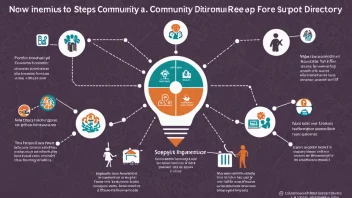Spirituality often serves as a guiding force in our lives, influencing our beliefs, values, and behaviors in profound ways. As research increasingly links spirituality to health outcomes, it becomes clear that understanding this connection can enhance public health strategies and individual health practices. Here are several key ways in which spirituality can influence public health behaviors, fostering a healthier society.
1. Spirituality Promotes Mental Wellbeing
A strong spiritual foundation can significantly enhance mental health. Engaging in spiritual practices such as meditation, prayer, or attending religious services can reduce stress, anxiety, and depression. Studies show that individuals who participate in regular spiritual activities report higher levels of life satisfaction and lower levels of emotional distress. This mental clarity can lead to healthier lifestyle choices, such as improved dietary habits and increased physical activity.
2. Strengthening Community Connections
Spirituality often fosters a sense of belonging and community. Religious organizations and spiritual groups provide support networks that encourage individuals to engage in healthy behaviors, participate in community service, and support each other in times of need. These connections can lead to collective actions that promote public health initiatives, such as vaccination drives, health screenings, and wellness programs.
3. Encouraging Healthy Lifestyles
Many spiritual teachings emphasize the importance of caring for one’s body as a temple. This principle can inspire individuals to adopt healthier lifestyles, including balanced diets, regular exercise, and avoidance of harmful substances. Spirituality can also encourage practices like mindfulness, which has been shown to improve eating habits and reduce stress-related behaviors. By embracing these teachings, individuals can cultivate a holistic approach to health.
4. Enhancing Coping Mechanisms
Life’s challenges, such as illness or personal loss, can be daunting. Spirituality provides individuals with coping mechanisms that can make these experiences more manageable. Through faith, prayer, or community support, individuals often find strength and resilience during difficult times. This coping ability can lead to better health outcomes, as individuals are more likely to seek medical help and adhere to treatment plans when they feel supported spiritually.
5. Advocating for Social Justice
Many spiritual traditions advocate for social justice and equality, recognizing that health disparities often arise from systemic issues. Spiritual communities can mobilize to address these injustices, advocating for policies that promote health equity, access to healthcare, and the rights of marginalized populations. By engaging in social justice initiatives, spiritual organizations can play a crucial role in addressing the root causes of health disparities and improving community health outcomes.
In conclusion, the intersection of spirituality and public health behaviors is a rich area for exploration and action. By promoting mental wellbeing, strengthening community ties, encouraging healthy lifestyles, enhancing coping mechanisms, and advocating for social justice, spirituality can significantly impact public health. As we recognize these connections, we can work towards creating a healthier society where individuals are empowered to take charge of their health through the guidance of their spiritual beliefs.






